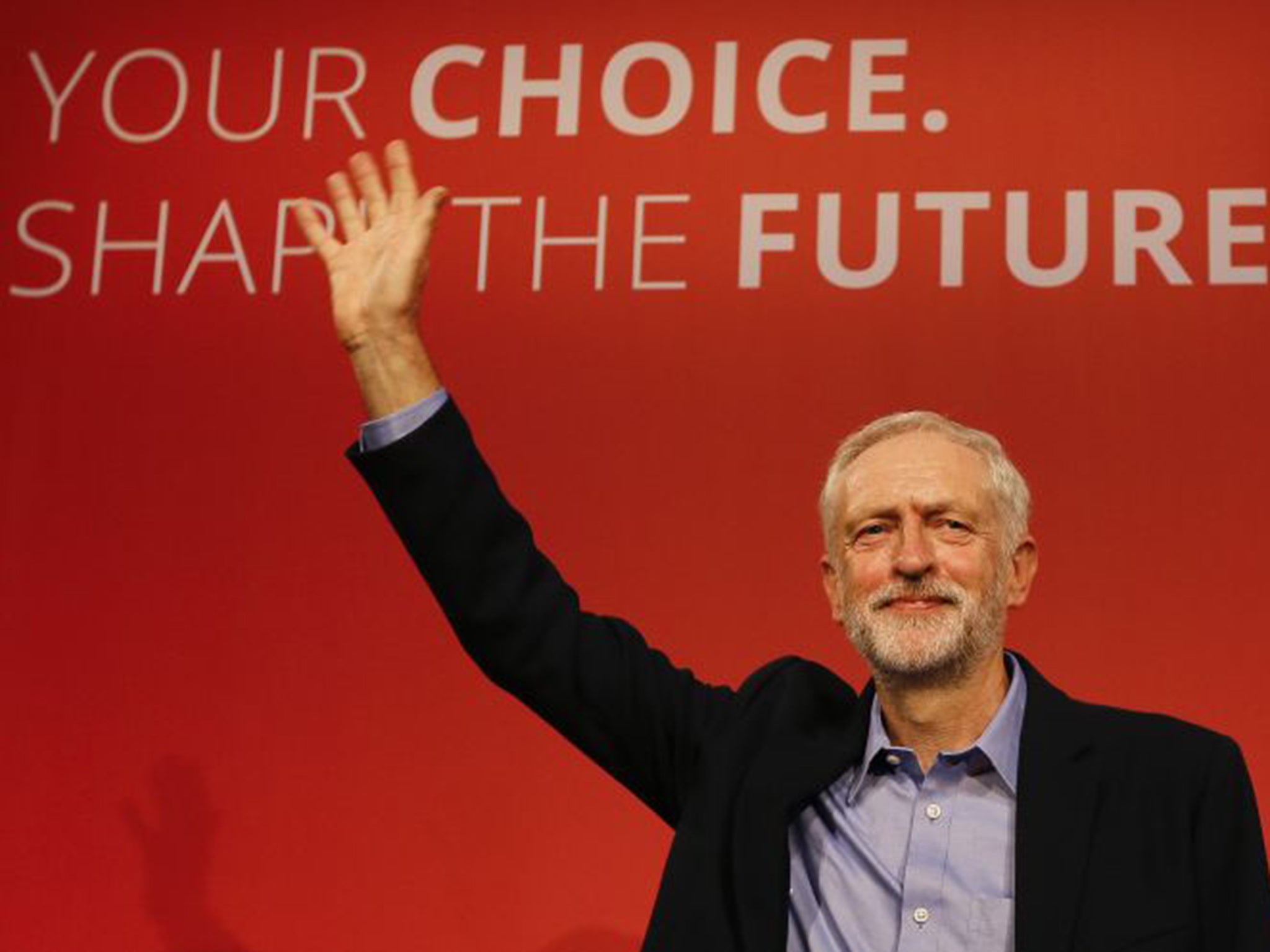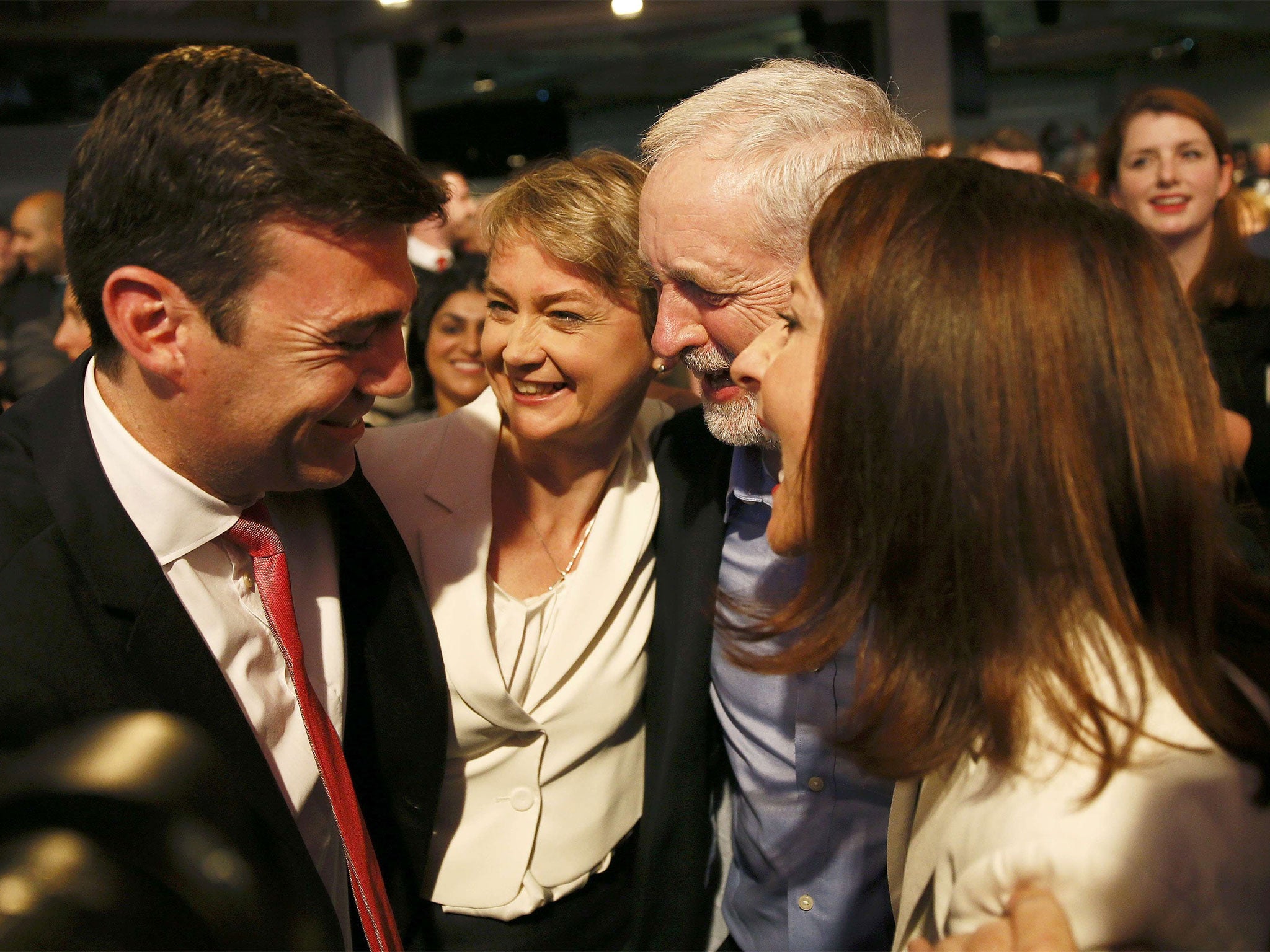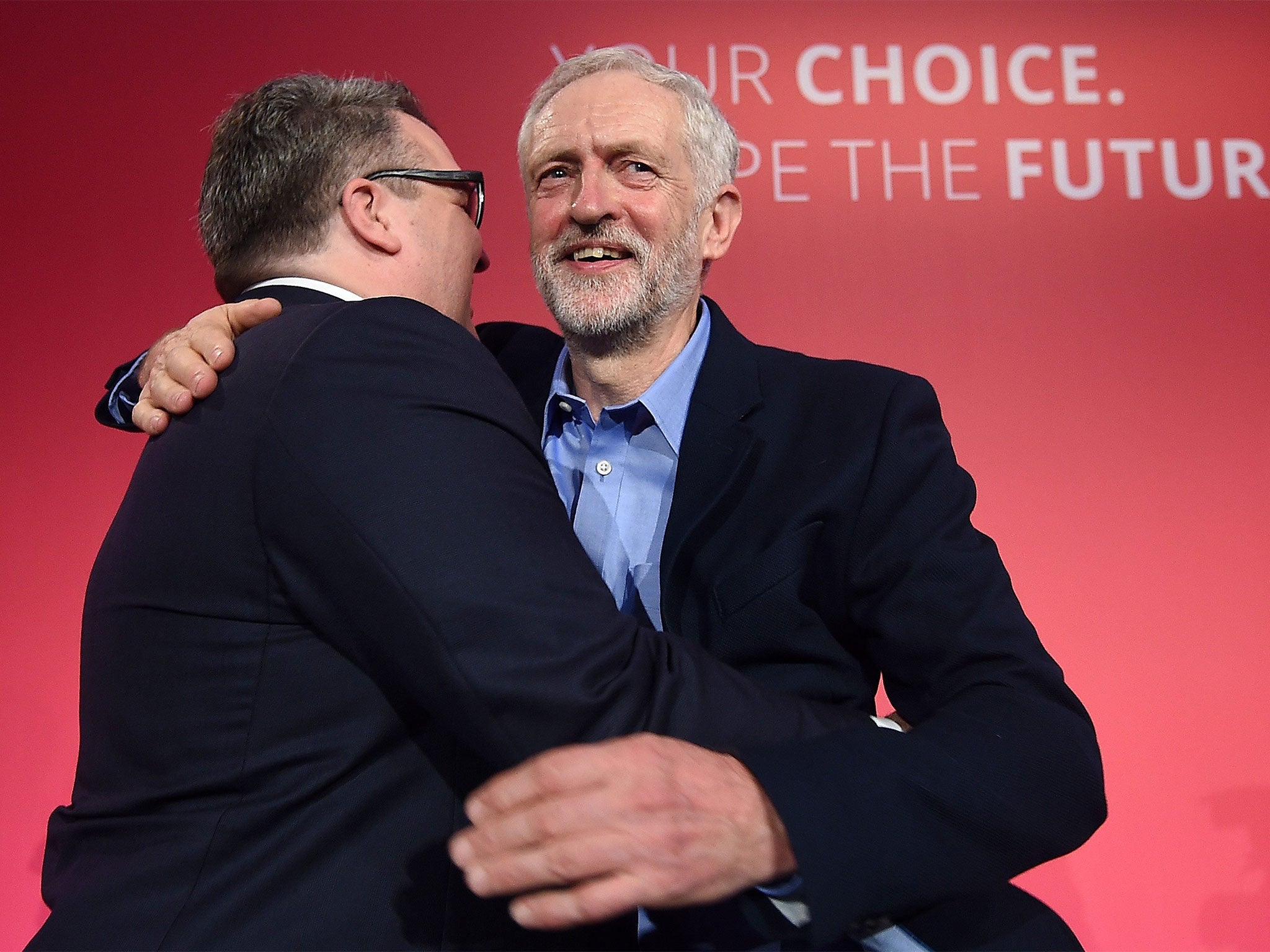Jeremy Corbyn victory speech: What he said - and what he meant
John Rentoul analyses the new Labour leader's words following his landslide win

Your support helps us to tell the story
From reproductive rights to climate change to Big Tech, The Independent is on the ground when the story is developing. Whether it's investigating the financials of Elon Musk's pro-Trump PAC or producing our latest documentary, 'The A Word', which shines a light on the American women fighting for reproductive rights, we know how important it is to parse out the facts from the messaging.
At such a critical moment in US history, we need reporters on the ground. Your donation allows us to keep sending journalists to speak to both sides of the story.
The Independent is trusted by Americans across the entire political spectrum. And unlike many other quality news outlets, we choose not to lock Americans out of our reporting and analysis with paywalls. We believe quality journalism should be available to everyone, paid for by those who can afford it.
Your support makes all the difference.What he said: “Can I start by thanking everyone who took part in this election, this huge democratic exercise of more than half a million people all across this country. It showed our party and our movement, passionate, democratic, diverse, united and absolutely determined in our quest for a decent and better society that is possible for all.”
What he meant: I have got a big mandate from party members and supporters, so don’t you MPs forget it. Passion is the cliché you are told never to use on a CV, but I will use it several times to make the point that my supporters are fired up and they will not stand for any nonsense from Blairite MPs.
What he said: “I want also to pay a huge thanks and tribute to Harriet Harman, who has been our acting leader and our deputy leader, and before that our acting leader.”
What he meant: I was going to list all her posts in reverse order, back to prefect at St Paul’s school, but people want to get to lunch.

What he said: “I want also to thank Ed Miliband for all the work he did as leader of our party. I had a very long conversation with Ed a couple of days ago, and I thanked him for his work as leader of the party. I thanked him for his work as Environment Secretary and somebody who is passionate about defending the world’s environment against the way it’s being destroyed at the present time.”
What he meant: First mention of policy, and a clear marker. It helps to suggest that I will work with people beyond the Labour Party, although people will realise I mean Caroline Lucas of the Green Party rather than Zac Goldsmith, the likely Tory candidate for London mayor.
What he said: “One of my first acts as the leader of the party will be to go to the demonstration this afternoon to show support for how refugees should be treated and must be treated in this country.”
What he meant: I was elected as someone who goes on demos, and winning won’t change me.
What he said: “I want to thank my own campaign team. They have been absolutely amazing. We came together after we had gone on to the ballot paper - I appreciate with difficulty - and I want to say thank you to the 36 Members of Parliament – well, 35 plus me because I nominated myself – for nominating me for this position.”
What he meant: That’s not the royal we, it’s the socialist we: everything we achieve is a collective effort.
What he said: “We are a party organically linked together between the unions and party membership and all the affiliated organisations. That is where we get our strength from.”
What he meant: Syntax worthy of John Prescott to praise the union link that founded the party, even if unions could not persuade more than 71,546 of their members to sign up and vote.
What he said: “I also say a huge thank you to all of my widest family, all of them, because they have been through the most appalling levels of abuse from some of our media over the past three months. It has been intrusive. It has been abusive. It’s been simply wrong.
“And I say to journalists: attack public political figures, make criticisms of them – that’s OK. That is what politics is about. But please don’t attack people who didn’t ask to be put in the limelight, merely want to get on with their lives. Leave them alone, leave them alone in all circumstances.”
What he meant: Get my excuses, I mean my protective barrier, in early. My supporters hate the Tory-inclined media, and blaming journalists will give me some cover when they find and quote other embarrassing things I have said in the past.
What he said: “I say to the new members of the party, or those that have joined in as registered supporters or affiliated supporters: welcome, welcome to our party, welcome to our movement. And I say to those returning to the party who were in it before and felt disillusioned and went away: welcome back, welcome back to your party, welcome home.”
What he meant: We’ve got our party back. Actually, we never had it in the first place. The closest we came was Tony Benn’s 49.6% for the deputy leadership in 1981. We’ve got someone else’s party, but we intend to hang on to it.
What he said: “To my friend Sadiq Khan, who has been elected as our mayoral candidate for London. Sadiq, we are going to be campaigning together and we are going to be campaigning together particularly on the crucial issue of housing in London. I am fed up with the social cleansing of London by this Tory government and its policies. We need a Labour mayor. We need a Labour mayor in London who can ensure we do house everyone in London… and Sadiq is the man to do it.”
What he meant: We are going to house everyone who wants to live in London. Not necessarily in London as such. There may be an overspill facility in Oldham.

What he said: “I think it is quite incredible the way the mood in Europe has changed over the past few weeks, of understanding that people fleeing from wars – they are the victims of wars, they are the generational victims of war, they are the intergenerational victims of war – end up in desperation, end up in terrible places, end up trying to gain a place of safety, end up trying to exercise their refugee rights.”
What he meant: I am canny enough to recognise that some apparently lefty positions can be popular.
What he said: “Let’s recognise that going to war creates a legacy of bitterness and problems.”
What he meant: I can be tactful and restrained: most Labour MPs voted for the war in Iraq, so I’ll just drop in half a sentence here.
What he said: “Let us be a force for change in the world, a force for humanity in the world, a force for peace in the world and a force that recognises we cannot go on like this, with grotesque levels of inequality, grotesque threats to our environment all around the world without the rich and powerful governments stepping up to the plate to make sure our world becomes safer and better… We are one world.”
What he meant: Copyright Blue Peter, 1983.
What he said:“And I say thank you in advance to us all working together to achieve great victories not just electorally for Labour, but emotionally for the whole of our society, to show we don’t have to be unequal. It doesn’t have to be unfair. Poverty isn’t inevitable. Things can – and they will – change.”
What he meant: My opponents in the party say I can’t win a general election, but I’m going to show, not tell, because the Labour cause is about more than just winning. It’s about the emotional health of the nation.
Join our commenting forum
Join thought-provoking conversations, follow other Independent readers and see their replies
Comments